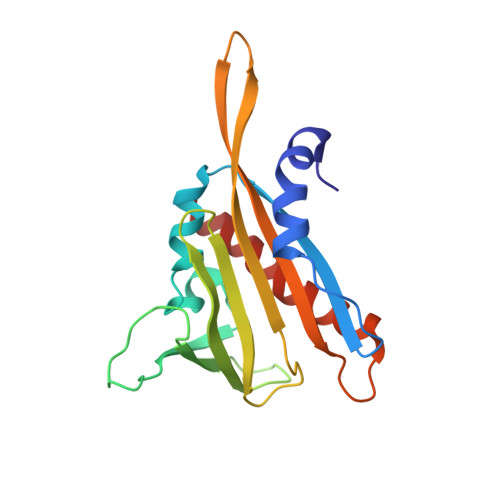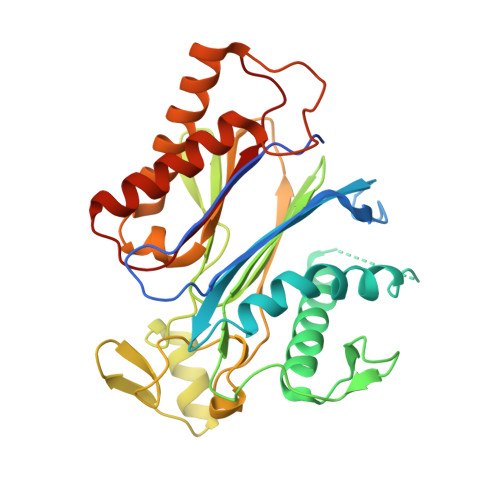Co-evolution of Hormone Metabolism and Signaling Networks Expands Plant Adaptive Plasticity.
Weng, J.K., Ye, M., Li, B., Noel, J.P.(2016) Cell 166: 881-893
- PubMed: 27518563
- DOI: https://doi.org/10.1016/j.cell.2016.06.027
- Primary Citation of Related Structures:
5JNN, 5JO1, 5JO2 - PubMed Abstract:
Classically, hormones elicit specific cellular responses by activating dedicated receptors. Nevertheless, the biosynthesis and turnover of many of these hormone molecules also produce chemically related metabolites. These molecules may also possess hormonal activities; therefore, one or more may contribute to the adaptive plasticity of signaling outcomes in host organisms. Here, we show that a catabolite of the plant hormone abscisic acid (ABA), namely phaseic acid (PA), likely emerged in seed plants as a signaling molecule that fine-tunes plant physiology, environmental adaptation, and development. This trait was facilitated by both the emergence-selection of a PA reductase that modulates PA concentrations and by the functional diversification of the ABA receptor family to perceive and respond to PA. Our results suggest that PA serves as a hormone in seed plants through activation of a subset of ABA receptors. This study demonstrates that the co-evolution of hormone metabolism and signaling networks can expand organismal resilience.
Organizational Affiliation:
Howard Hughes Medical Institute and Jack H. Skirball Center for Chemical Biology and Proteomics, The Salk Institute for Biological Studies, La Jolla, CA 92037, USA.

















